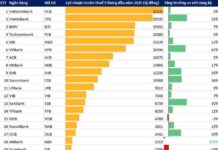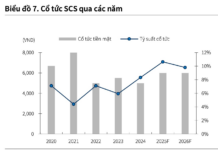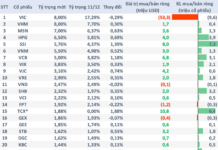Following the Prime Minister’s directive on responding to floods, rescue and relief efforts, and addressing the impacts of natural disasters to ensure the well-being of affected citizens, the meeting discussed and provided feedback on two main agendas: The Draft Law on amending and supplementing several articles of the Law on State Budget, Law on Public Asset Management and Use, Law on National Reserves, Law on Accounting, Law on Independent Audit, Securities Law, and Law on Tax Administration; and the proposal to build the Law on Issuing Legal Documents (amended).
Regarding the draft law, delegates offered their insights on the dossier, order and procedure of submission, principles, and requirements for law building, as well as the specific content of the draft law.
For the proposal to build the law, delegates shared their thoughts on the dossier, order, and procedure for the proposal, the necessity of building the law, its principles, requirements, and the suggested policies.
Along with providing feedback on the above-mentioned issues, Prime Minister Pham Minh Chinh emphasized certain principles and requirements for constructing the draft law and the proposal to build the law.
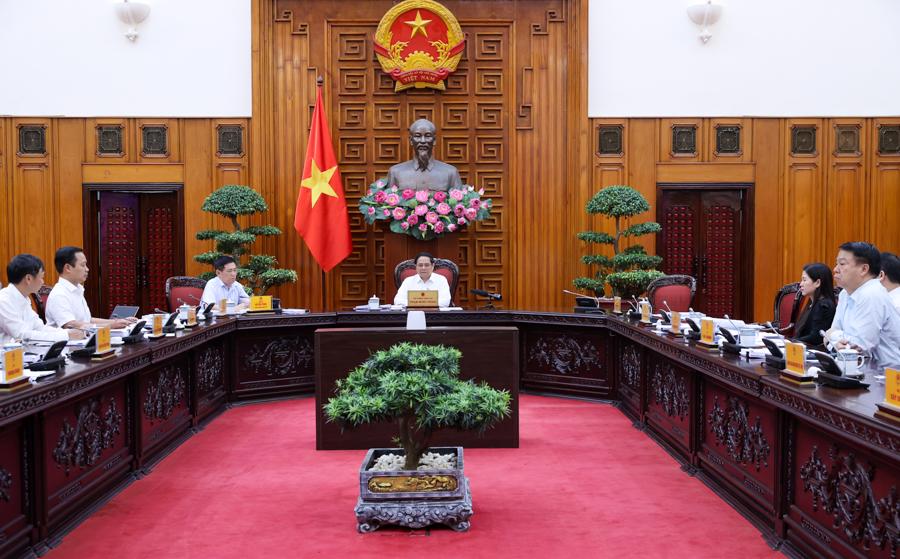
Regarding the Draft Law on amending and supplementing several articles of the aforementioned laws, the Prime Minister highly appreciated the sense of responsibility demonstrated by the Ministry of Finance – the agency in charge of constructing this draft law.
The Prime Minister requested that the Ministry of Finance thoroughly absorb relevant opinions and continue to coordinate with concerned agencies to meticulously review and perfect the content of the draft law, reporting to the Government at the Legislative Meeting in September 2024.
The Prime Minister emphasized the principles and requirements in constructing this draft law, which include guaranteeing citizens’ rights to investment and business, maximizing the resolution of existing obstacles and inconsistencies in practice, and expanding the mechanism to mobilize resources from the community, individuals, and enterprises for development, with public investment taking the lead in activating private investment.
Additionally, there should be a focus on maximizing decentralization and delegation of power coupled with resource allocation, enhancing implementation capacity, clearly defining the responsibilities of individuals and collectives, and designing tools to strengthen inspection and supervision. Promoting digital transformation, reducing administrative procedures, and eliminating hassles and corruption in budget management and flexible and efficient utilization of the budget, especially between the central and local budgets, are also key aspects.
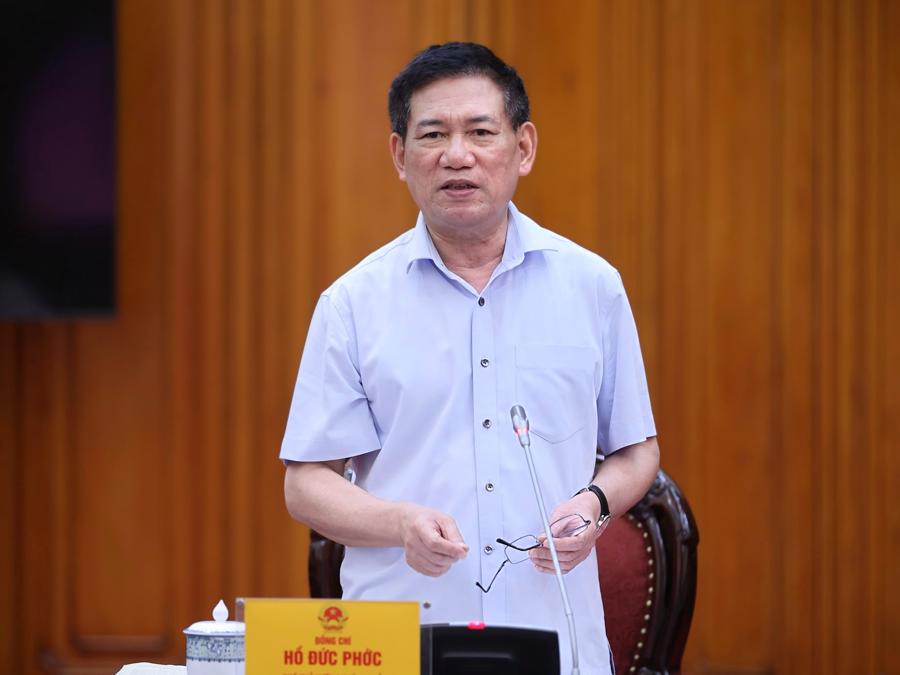
Concerning the proposal to build the Law on Issuing Legal Documents (amended), the Prime Minister appreciated the Ministry of Justice for taking the lead and coordinating with relevant ministries and agencies in preparing the proposal.
The Prime Minister emphasized the need to strengthen the Party’s leadership in law-making, adopt innovative thinking in legislation to promptly and flexibly address rapid changes and urgent demands in practice, and tailor the level of detail in legal regulations based on the specific context and scope of application. This approach ensures effective social management while fostering innovation and creativity. Emphasizing a more flexible law-making process, he suggested exploring options to shorten the time frame and further enhance decentralization and delegation of power. He also highlighted the importance of having appropriate mechanisms and policies for the team of legal builders and establishing principles for applying legal documents when there are conflicting provisions.
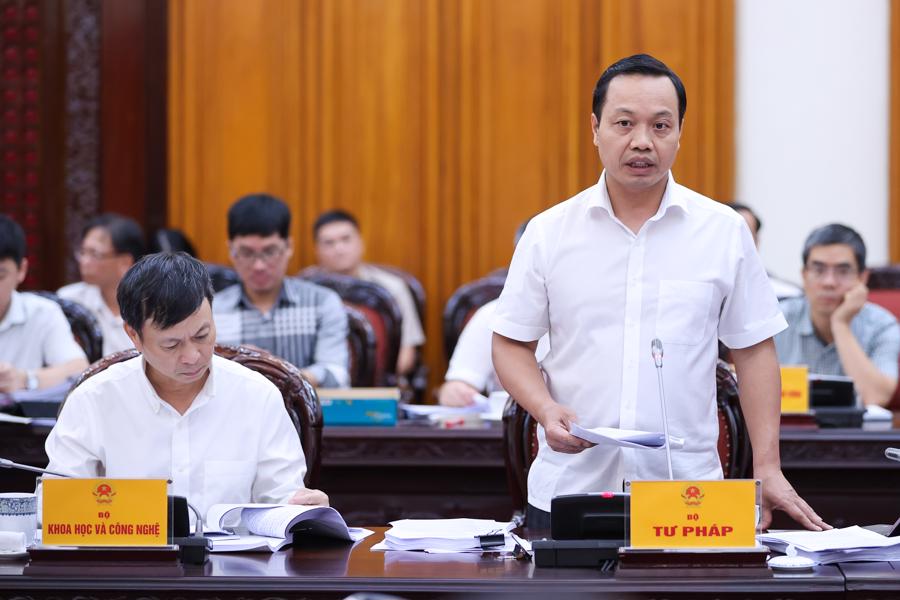
“For matters that are mature, clear, and have proven effective in practice, with the majority in agreement, continue to implement and legalize them,” the Prime Minister emphasized. “For new and unclear issues, be bold in piloting, gaining experience, and gradually expanding, without being overly cautious or hasty.”
The Prime Minister assigned the Ministry of Justice to absorb the conclusions of the Government’s Standing Committee, the opinions of the agencies at the meeting, and the opinions of the Government members. The Ministry is also requested to coordinate with relevant ministries and agencies to promptly research and perfect the proposal to build the Law, submitting it to the Government at the Legislative Meeting in September 2024.
Rearing in Revenue: The Ministry’s Mandate?
The Vietnamese government has made significant strides in reforming state capital investment management. One notable change is the decision to no longer manage second-tier enterprises and reduce the number of enterprises requiring the Prime Minister’s approval for leadership appointments. These moves signify a shift towards greater autonomy for businesses and a streamlined decision-making process. However, a point of contention remains: how should state-owned enterprises distribute profits when the state does not hold a substantial amount of capital in these businesses? This question sparks an important debate, highlighting the need to balance state involvement and enterprise independence.
“Audit Firms’ Misconduct: Unraveling the Devastating Impact”
The Ministry of Finance has proposed a significant increase in penalties for violations in independent auditing, with a maximum fine of 3 billion VND for organizations and 1.5 billion VND for individuals. This proposal has sparked concerns among businesses about its potential impact on the psychology of auditors. Experts argue that harsh penalties are necessary due to the severe consequences of audit violations.
Appointment of the New Director General of Customs
On the afternoon of August 23rd, Deputy Minister of Finance Nguyen Duc Chi appointed a new Director General of Customs and two Deputy Directors General of the General Department of Vietnam Customs.









